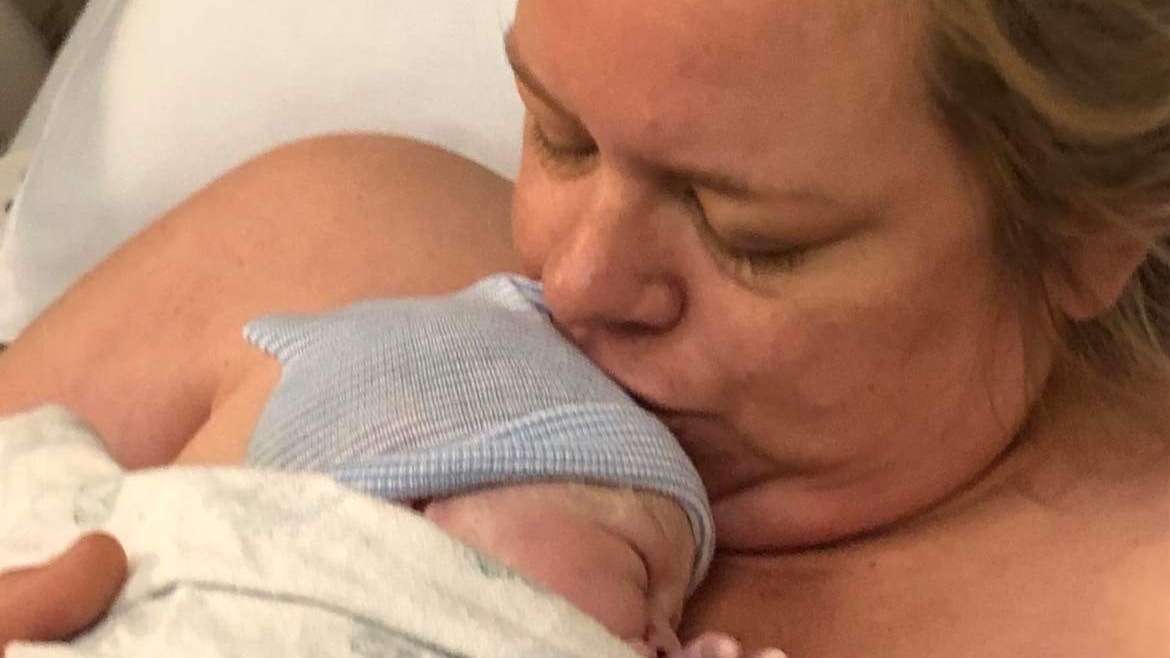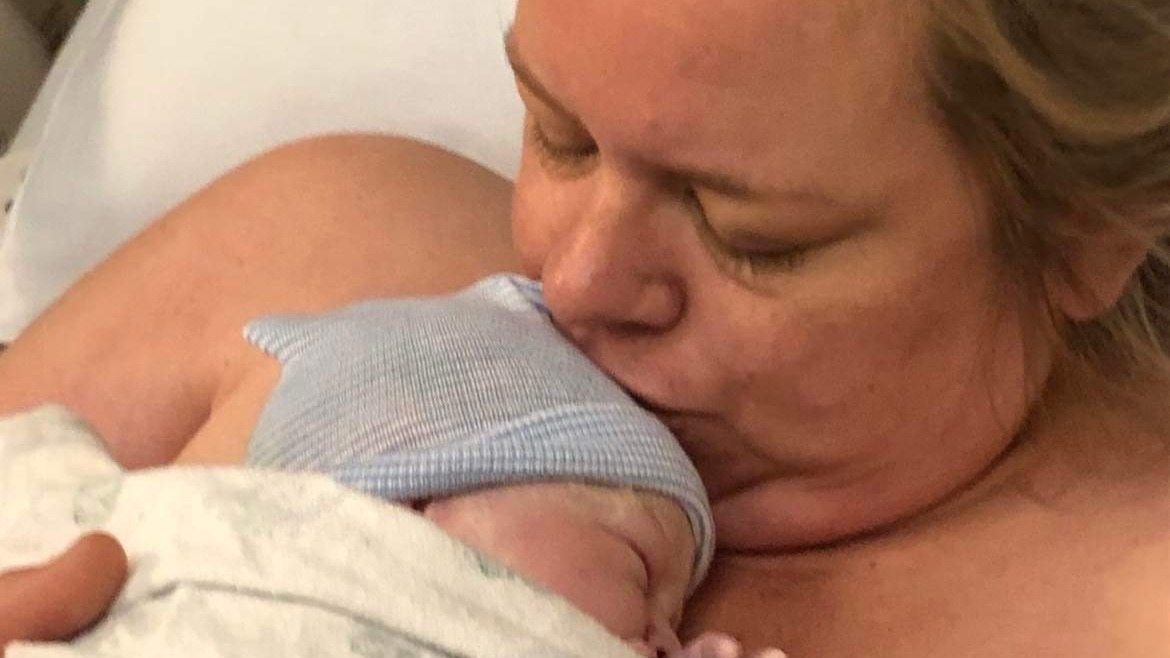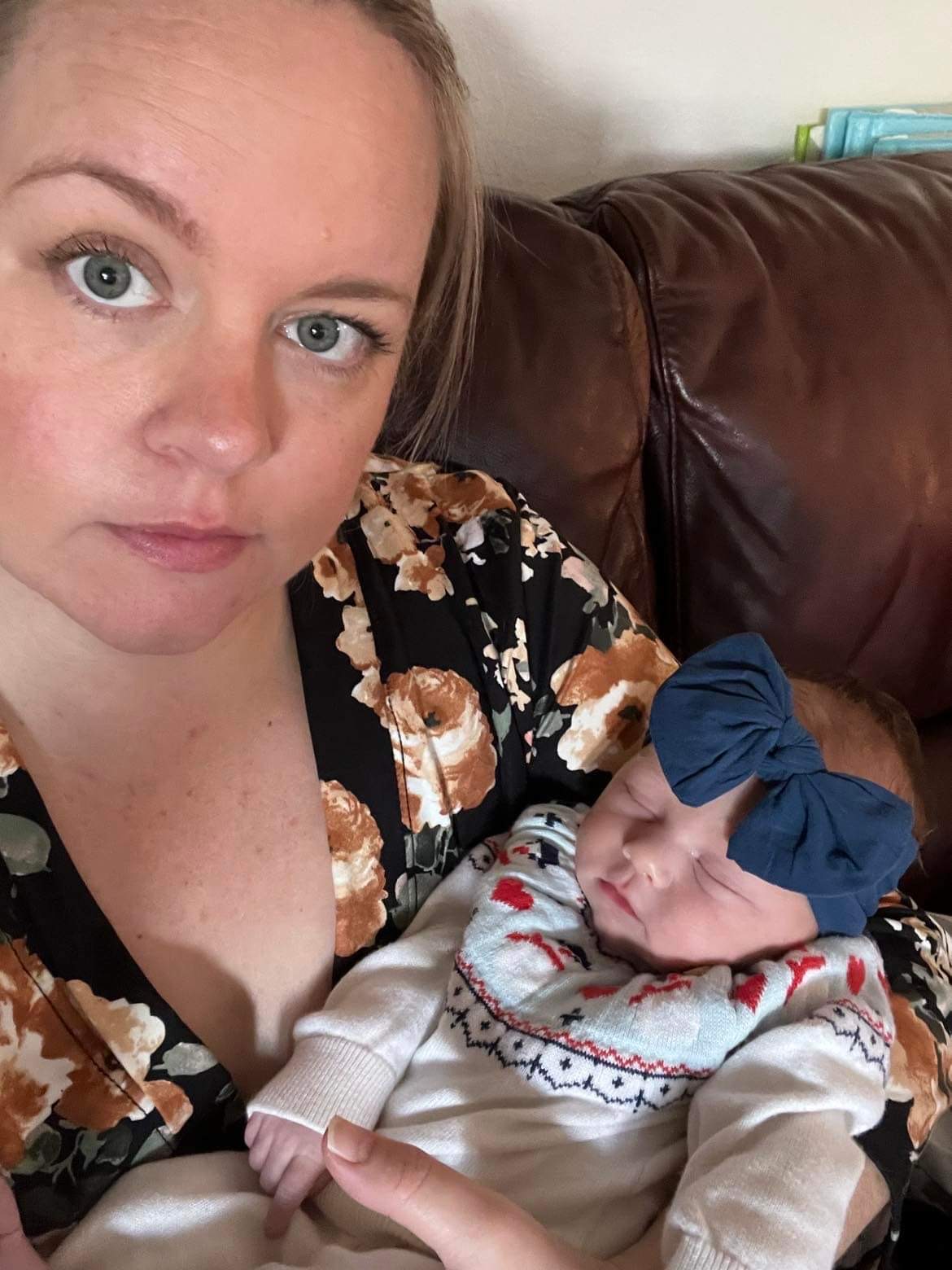
Recently, new mom Jessica Kelly made headlines after her Apple Watch saved her life and the life of her unborn child. During her third trimester, she was feeling unwell and her smartwatch alerted her of a high heart rate. With the alerts being 10 to 30 minutes apart, she decided it was time to go to the hospital.
Once she reached the hospital, she experienced excruciating contractions and had begun vomiting. As the doctors assessed her, they saw that she was losing blood due to a placental abruption.
Jessica’s delivery room was chaos. It was full of nurses and doctors of different specialities who were all on standby and waiting to execute one of the many delivery options. In the end, it came down to Jessica receiving an epidural and delivering her daughter, Shelby Marie. From when she arrived to the hospital to when her daughter was born, only three hours had passed.
The Birth Trauma Association shares that mothers who experience birth trauma do so because while delivering they experienced the thought of losing their child. This trauma can sometimes transition into postpartum depression after the baby has been delivered.
“I’ll be doing some completely normal task, like the dishes or showering, and it comes back and hits me like a ton of bricks,” Jessica shared with Mom.com about how her birthing experience has affected her.
About 45 percent of moms express that they had a traumatic birth experience, thus showing how it is too much of a common occurrence. Studies show how most of those mothers do not receive the help they need due to a variety of reasons — one of them being the stigmas surrounding mental health. Within the mom community, conversations about birth trauma must become normalized so that no mom lacks the support they need to mentally heal from giving birth.
“My mind goes through snippets of everything that happened.”
For Jessica, the realization of how close she came to losing her baby is not lost on her.
“It makes sleeping harder, day-to-day activities harder, leaving the house harder. Everything is magnified and harder and scarier. Not to mention I wake up with nightmares. The anxiety of leaving her thinking something can happen to her topping that with postpartum depression and already very bad anxiety is hard to put into words and describe,” Jessica said.

“Even though it was two months ago today, I’m still coping with the trauma from it.”
Despite having a healthy baby and strong support system, dealing with her trauma has been challenging.
“Talking about it and taking antidepressants is helping, but I’m also in the process of seeking a therapist that specializes in birth trauma,” she added.
“We are told that birthing is this beautiful unicorn and rainbow sort of thing.”
Each woman’s birthing experience is different, and birthing stories cannot be filtered.
“Women should not be shamed, treated poorly, or afraid because society thinks that it doesn’t matter or that we’re complaining or that because we’re women we’re just supposed to move forward with it and shove everything down,” Jessica said.

“Know that you are not alone.”
The key for every mom who experiences PPD or birth trauma is to know that they do not have to deal with it on their own.
“Find a community, or talk to someone like a friend or a therapist. It’s OK to express how you feel. Those are real feelings. You went through a real experience, and it’s OK to not be OK,” the new mom said.
In addition to finding a therapist who deals with birth trauma, Jessica is also creating an online community for women to share their experiences.
For any mom who is experiencing birth trauma, you can find your community to receive healing. Here are some helpful online resources:




